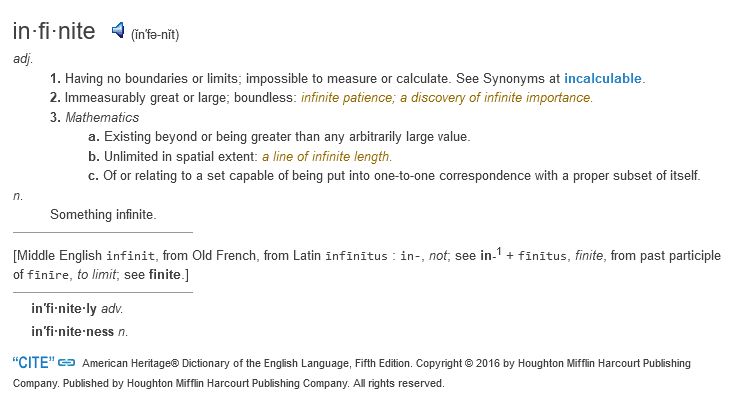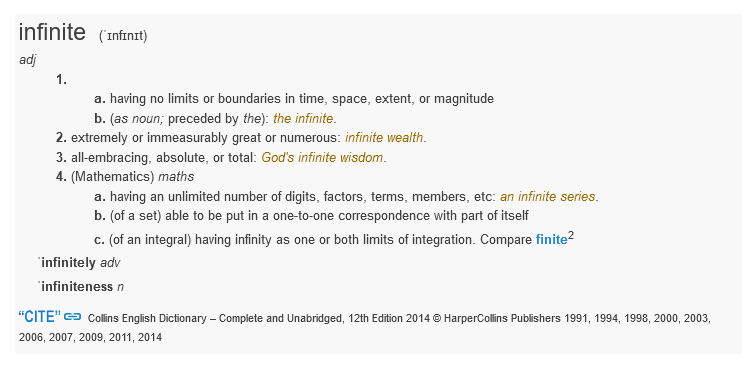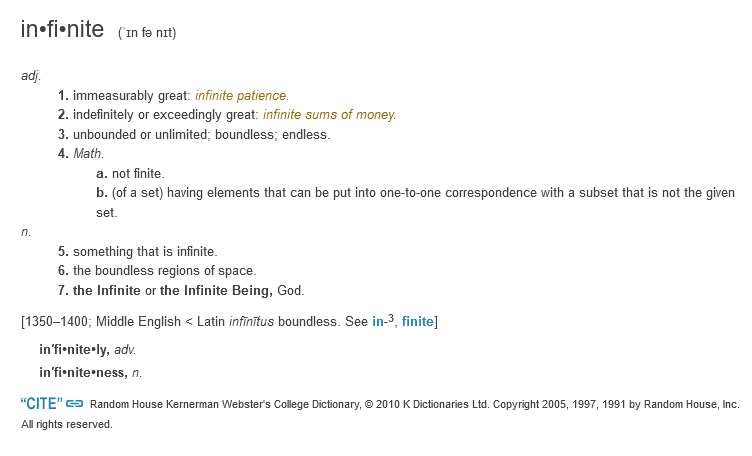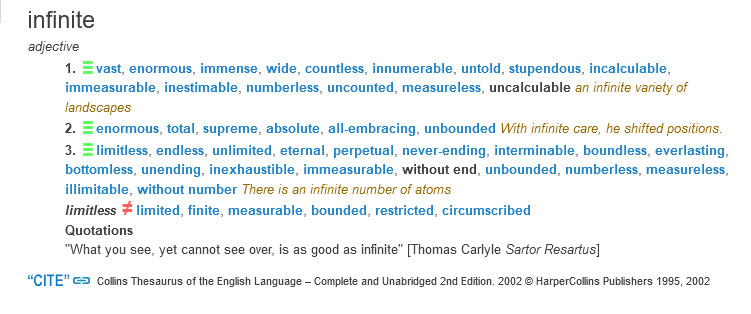I begin this thread tentatively. Initially, I considered adding to an existing thread, to wit: “What about a self-caused universe?”. Instead, I decided to open a new thread, … this one,–for the moment, at least–to ask the question in the thread title above: “Is an infinite number of things possible?”
That issue came up previously, elsewhere, specifically, if I remember correctly in another thread that I started called: The Problem of The Now. [Feel to Correct and/or amend my memory.] It (i.e. “the issue”) has generated several bumper-car events since the issue first came up. I suspect that more events will occur shortly, How long interest in the issue persists remains to be seen. Personally, it’s entirely possible that I’ll “fall off my horse”, … sooner than later: a possibility that tempers my interest. [BTW, … don’t intend to wait with bated breath for anyone else to play in this sandbox.
At this point, I am moved to share a link to a Youtube that I have seen which I think is relevant in this thread: Infinite Worlds: A Journey through Parallel Universes. Unfortunately, the video is 1:43:57, which will discourage almost anyone but the most interested from watching it. Even sadder is that, the subtitles and the transcript of the program are in Serbian, and I don’t know Serbian. If any one knows how to translate the transcript into English, speak up. Fortunately, however, there are some timestamps:
- Introduction with Brian Greene 00:00
- Musical interlude 25:15
- Participant Introductions 33:49
- How do we know there was a Big Bang 35:50
- How do we get from a single universe to a multiverse. 47:14
- Is the universe expanding and how fast? 01:00:25
- What does six dimensional space look like? 01:08:00
- How do we know there is a multiverse? 01:13:48
- Bryce DeWitt on the multiverse concept 01:24:40
- What if we assume the universe is the simulation hypothesis? 01:37:14
Hmmm, I seem to have exhausted myself at the moment. So, I’m going to take a break, and plan on returning to this thread sometime today. Before I go, I’ll state my own brief response to the question in this thread’s title, for the record.
- My answer is: "I say “Yes, an infinite number of things are possible”. That’s a position which I’m pretty sure that I have stated somewhere in this forum, several times.
Edit: the language of the subtitles and transcript is Serbian, not Polish.***




